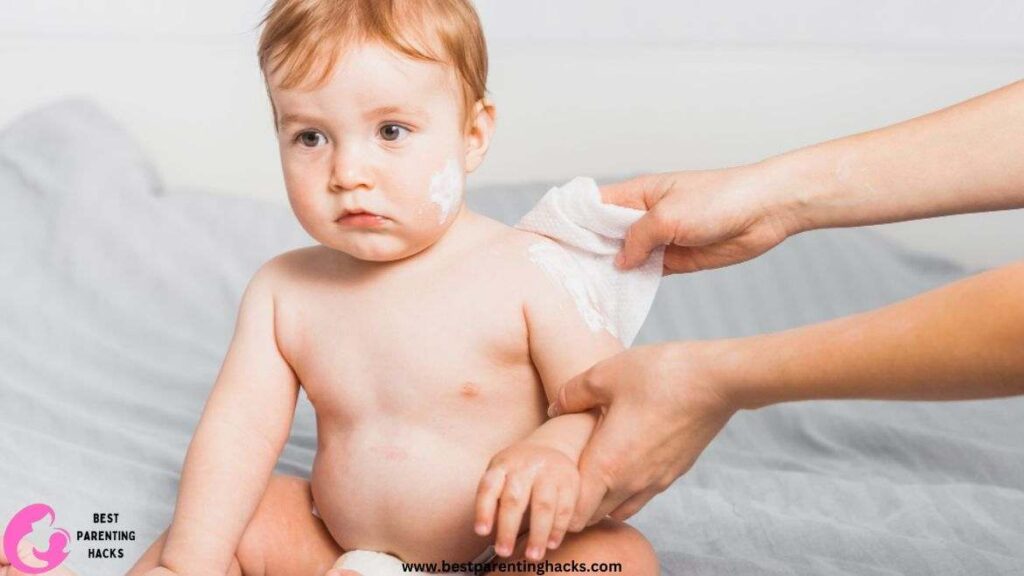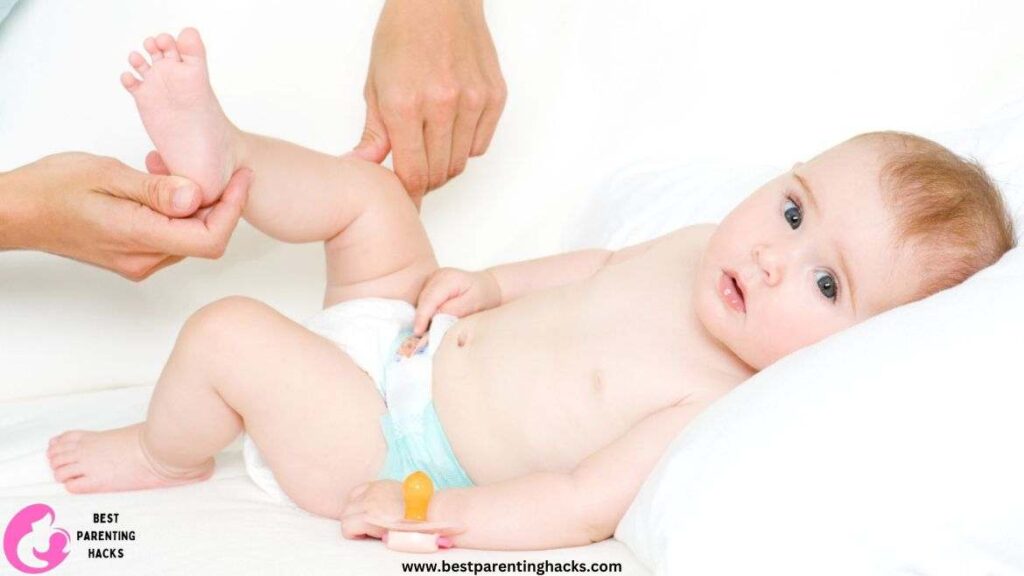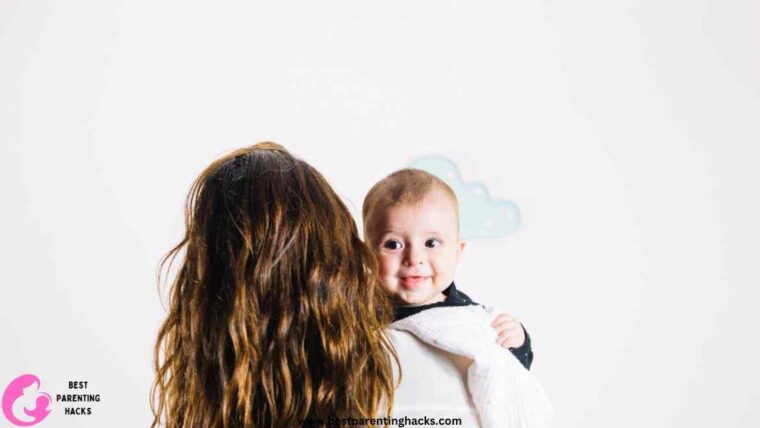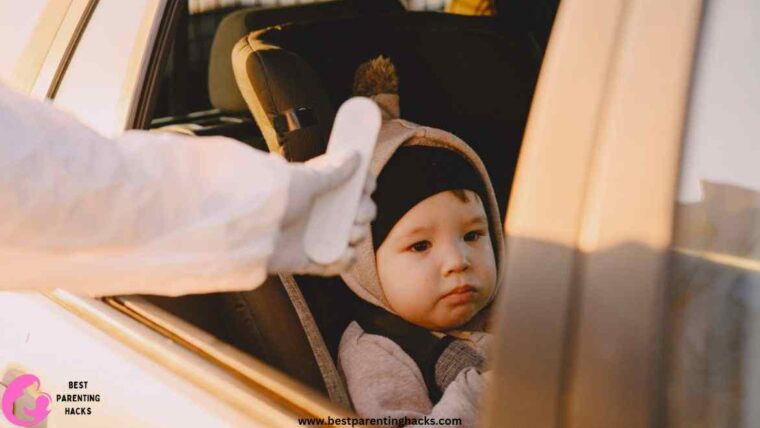Table of Contents
It can be difficult to navigate the complexity of childrearing when you’re a parent and don’t have your blindfold on. When I mistook a disinfecting wipe for a baby wipe, it was one of the most shocking things that happened to me. Parents frequently experience this panic attack, particularly when both kinds of wipes are easily accessible in the home. Such confusion might result from packaging similarities as well as the daily chaos of life.
In the moment of fear that ensued, a barrage of inquiries swept through my thoughts. “I Accidentally Used Disinfectant Wipes on My Baby. What should I do now?” was, of course, the most urgent. The first thing to know if you’re reading this after making a similar mistake is that, although not being ideal, it’s not the end of the world. It’s important to move swiftly and composedly. It’s important to rinse right away and keep an eye out for any negative responses. Most of the time, taking quick action will lessen possible damage, and knowing how disinfectant wipes work can make crisis management easier.

Immediate Steps to Take
Taking quick action is essential to reduce any possible harm if you have used a disinfectant wipe on your infant.
1: Rinse thoroughly: Use lukewarm water to clean the afflicted area quickly and gently. This aids in clearing the skin of any chemical residue.
2: observe for Reactions: Keep a watchful eye out for any indications of skin irritation, including redness or rash, after washing.
3: Give Your Child Comfort: Keep your infant cozy and at ease. As stress might worsen skin responses, it’s critical to calm your youngster.
4: Seek Medical Advice If Necessary: It’s advisable to get medical advice right away if you experience any severe responses or if you’re not sure how serious the exposure was.
5: Document the incident: Make a note of the product used and the exposure period. Medical personnel may need this information to provide the right care.
You Might Also Like to Read: When To Buy Maternity Clothes?
Understanding Disinfectant Wipes
Disinfectant wipes are frequently used in homes for cleaning, but their soaking solutions can be irritating to delicate skin, particularly that of infants. These wipes are intended to eradicate viruses and germs from surfaces such as doorknobs and tabletops. Among the chemicals they include are detergents and antimicrobials, which work well against bacteria but aren’t meant for use on human skin.
Step 1: Recognize the Ingredients: Although alkyl dimethyl benzyl ammonium chloride is an efficient disinfectant, it can irritate skin. This is the case with most disinfectant wipes.
Step 2: Understand the Goal: These wipes are not meant to be used on skin, especially baby skin, since they are designed to clean hard, non-porous surfaces.
Step 3: Differentiating from Baby Wipes: Because infant skin is fragile, baby wipes are made with soft ingredients like moisturizers and light cleansers. Disinfectant wipes, on the other hand, are used to clean and sanitize surfaces.
Step 4: Safe Storage Practices: Keep baby wipes and disinfectant wipes apart in a location that is out of reach for kids to prevent confusion.

Potential Risks and Symptoms to Watch For
Even though many disinfection wipes are not extremely harmful, they might irritate skin or trigger allergic responses, particularly in infants.
Factor 1: Skin Irritation: This is the most frequent response and might show up as a rash, redness, or itching on the skin.
Factor 2: Allergic Reactions: Some infants may respond more severely to the wipes’ substances due to allergies.
Factor 3: Ingestion Risk: A baby runs the risk of swallowing dangerous substances if they put a wipe in their mouth. Keep an eye out for indications of digestive trouble.
Factor 4: Eye Exposure: The wipe may irritate the eyes or result in conjunctivitis if it meets the eyes.
Factor 5: Respiratory Problems: Although it is unlikely, breathing in wipe fumes may irritate the respiratory system.
You Might Also Like to Read: The Average Time Parents Spend With Baby In NICU

Long-Term Considerations
Step 1: Monitor Skin Health: Over the following three days, pay close attention to your baby’s skin. A pediatrician should be consulted if any discomfort continues.
Step 2: Choose Products That Are Kind to Skin: To prevent further irritation, choose hypoallergenic, mild skincare products for your infant.
Step 3: Teach Others and Yourself: Acquire expertise about using cleaning chemicals safely around the house and impart this information to other caregivers.
Step 4: Put Preventive Measures into Practice: To avoid confusion in the future, arrange and store home and infant care supplies differently.

Expert Opinions and Advice
Toxicologists and pediatricians stress how crucial it is to use goods as intended. Disinfectant wipes should not be used on the skin, especially for infants. Rather, they advise wiping the infant with a moist cloth or baby wipes. They emphasize the significance of promptly washing after an unintentional exposure and getting medical attention if required.
Personal Reflections and Tips
My experience taught me how important it is to use infant care items carefully. I now strictly organize my cleaning and baby supplies, making sure to double-check everything before using it. By sharing my story, I aim to protect the safety of my children and assist other parents from making the same mistakes.

Conclusion
Although it might be upsetting to inadvertently use a disinfectant wipe on a newborn, the situation can be handled with quick thinking and a suitable response. We can guarantee the security and welfare of our kids by being aware of the nature of these items, acting quickly to reduce any possible harm, and absorbing lessons from the past. Recall that being a parent is an ongoing learning process, and it’s acceptable to make errors if we grow from them.
FAQs
1. If I unintentionally give my kid a disinfectant wipe, what should I do right away?
- As soon as possible, rinse the afflicted region with lukewarm water and look for any indications of skin irritation.
2. Do disinfectant wipes cause skin irritation in infants?
- Because of their chemical makeup, they can induce irritation or allergic responses.
3. Can I clean surfaces with baby wipes rather than disinfectant wipes?
- While they can be used for mild cleaning, baby wipes are not intended for surface disinfection.
4. What symptoms may an allergic response to disinfecting wipes on a baby’s skin exhibit?
- Redness, rash, itching, or swelling are some of the indicators.
5. How can I stop myself from inadvertently giving my infant disinfecting wipes?
- Always read labels before using baby wipes and disinfectant wipes and store them separately.
6. If I put a disinfectant wipe on my infant, should I visit a doctor?
- It is recommended to speak with a healthcare provider if you are worried or if there are indications of a serious response.
7. When washing a baby, what safer options are there than disinfectant wipes?
- For your baby’s skin, use moist washcloths or baby-safe cleaning solutions.




